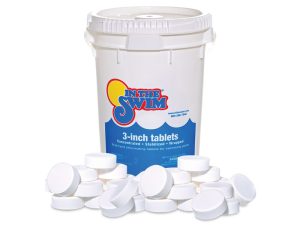The price of chlorine tablets has seen fluctuations due to various factors such as raw material costs, demand surges, and logistical challenges. For pool owners, grasping the nuances of these price changes is essential for both maintaining their pools effectively and managing maintenance budgets.
Seasonal Demand and Pricing Trends
The demand for chlorine tablets peaks during the late spring and summer months, as pool owners prepare for the swimming season. This increased demand can lead to higher prices, making it a critical time for consumers to monitor price trends closely.
Factors Influencing Prices
Several key factors can significantly affect the price of chlorine tablets. These include:
- Raw material costs: The production of chlorine tablets relies on specific chemicals. Fluctuations in these material costs can directly impact prices.
- Manufacturing and distribution costs: Changes in manufacturing capacity, energy prices, and transportation costs can also influence the final pricing of chlorine tablets.
- Market competition: The number of manufacturers and suppliers in the market can affect pricing. A competitive market often leads to more favorable prices for consumers.
Smart Buying Strategies for Pool Owners
Pool owners can adopt several strategies to navigate the pricing of chlorine tablets effectively:
- Bulk purchases: Buying chlorine tablets in bulk can often secure a lower price per unit, offering significant savings over time.
- Off-season shopping: Purchasing chlorine tablets during the off-season can sometimes result in lower prices due to decreased demand.
- Price comparison and alerts: Utilizing online tools to compare prices and setting up alerts for price drops can help pool owners buy at the most advantageous times.

Selecting the Right Chlorine Tablets for Your Pool
Choosing the correct type of chlorine tablet is crucial for effective pool maintenance. The primary types include stabilized and unstabilized chlorine tablets, each suited for different pool types and uses.
Stabilized vs. Unstabilized Chlorine Tablets
- Stabilized chlorine tablets are ideal for outdoor pools as they contain cyanuric acid, which protects chlorine from UV light degradation.
- Unstabilized chlorine tablets lack cyanuric acid, making them suitable for indoor pools or as a quick shock treatment for outdoor pools.
It's important for pool owners to select the type that best matches their pool's specific needs. Incorrect usage can lead to ineffective sanitization or unnecessary chemical buildup.
Tips for Effective Use
- Regularly check your pool's chlorine levels to ensure they remain within the recommended range.
- Store chlorine tablets in a cool, dry place to maintain their effectiveness.
- Follow the manufacturer's instructions for the correct dosage and frequency to avoid over or under-chlorination.
For the most up-to-date pricing and selection of chlorine tablets, consider visiting 3chlorine.com.